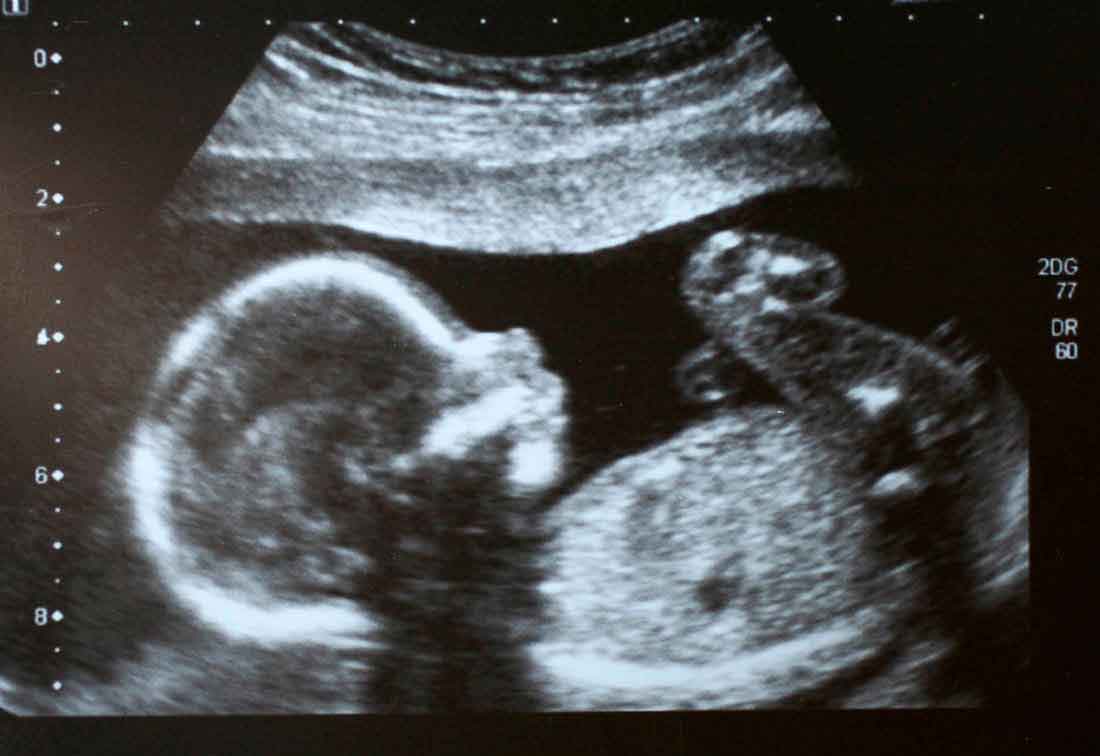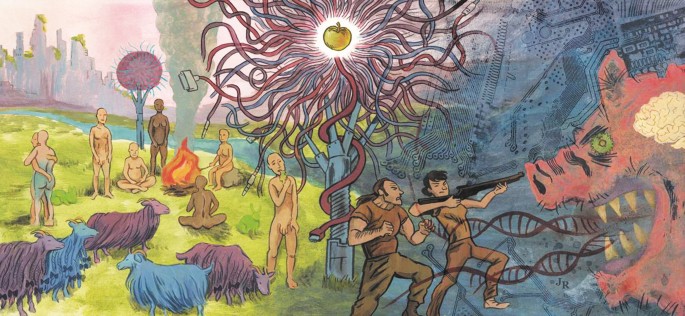|
4/15/2021 0 Comments Time Travel and The Mandela EffectThe novel The Gone World by Tom Sweterlitsch is a futuristic novel that revolves around time travel. Shannon Moss, an agent in a secret division of the Naval Criminal Investigative Service (NCIS), travels through time in order to solve crimes. When Shannon travels through time she enters the IFT or Inadmissible Future Trajectory. These IFT’s are examples of possible futures, but are not definitive futures. The Terra Firma is the only “real” timeline, because the IFT’s stop existing as soon as the time traveler leaves. At one point in the novel, Shannon is rescued from an ITF by her crew, or at least they think they rescued Shannon. Shannon is exclaiming that they have the wrong Shannon, when in reality the real Shannon has passed and this is an IFT Shannon created by a time knot (very complicated I know). It took me until I got to the end of the novel and did some research to realize what had happened, however when Shannon was saying they have the wrong Shannon, it made me think of the Mandela effect. The mandela effect is a phenomenon where a large number of people remember something differently than how it actually occurred. Examples of the mandela include “Looney Toons'' when its actually “Looney Tunes,” “The Berenstein Bears” when it is actually “The Berenstain Bears” and “Oscar Meyer” when it is actually “Oscar Mayer” just to name a few. (source ) Scientists at healthline believe that the mandela effect could just be an example of how poor memory is, however there is a conspiracy theory that each mandela effect could be proof of alternate universes. Like in the Gone World, where the ITF Shannon is remembering things from her past life that don’t make sense in this new world, this could be an example of an individual Mandela effect since a true Mandela effect occurs when a large group mis-recalls an event. The idea of multiple ITF as presented in The Gone World goes along with multiple alternate universes and maybe, the Mandela effect or other instances of misremembering could be examples of ITF, or a new Universe.
0 Comments
4/1/2021 0 Comments New Normal - Zone One
3/18/2021 0 Comments American War - Fiction or DestinyAmerican War by Omar El Akkad is set between 2075 and 2086 during the second American Civil War. The main character, Sarat, is only 6 when the war begins. The Northern portion of the United States has deemed fossil fuels illegal, however the southern states reject this law, thus beginning the second civil war. Throughout American War the reader sees elements usually seen in war torn countries such as: extreme poverty, refugee camps, and vulnerable persons who become weapons of war, in the setting of America. These events are seen at their most extreme in this novel, something that we do not see in America today, but does not mean it is impossible to happen in America. The question remains: is the story of American War El Akkad’s prediction of the American future? In an interview with UK based Foyles authors, when asked if his novel is how he sees America in 2074, he responded: “I honestly didn’t even intend for this book to be primarily about America. I set out to write a book about the universality of revenge, and I set it in America because the sort of things I wanted to talk about tend to happen far away from here, in some of the poorest and most war-torn places on the planet, and it felt necessary to make them happen close to home.” While it was not El Akkads intent to portray America in 2074, he was showing what some countries look like in present day. By setting the novel in America, El Akkad was able to bring attention to the political and social issues of, as he put it, “the poorest and most war-torn” countries in the world. Does this mean America could never see the level of destruction in these war - torn countries? Absolutely not, America is very susceptible to the destruction these poor countries are facing. This year alone, we have had huge civil rights movements (Black Lives Matter) against the misuse of force in our police officers, we had riots in our nations capital (January 6th), and we have seen a huge increase in radical political movements. These events have divided our nation, and in my opinion, it is only a matter of time before American War becomes non-fiction.
Ah yes, history, my least favorite subject. Growing up memorizing fact after fact, date after date, person after person. Memorizing was not my strong suit. However when I began to take AP United States History (APUSH) and we started also talking about why things happened, the cause and effects of certain events, and what we can do now to prevent history from repeating, I began to actually like history. In a survey of educators conducted by EdWeek, 78% said the purpose of teaching history is “to prepare students to be active and informed citizens.” The other 22% said “to teach analytical, research, and critical thinking skills.” (Ujifusa) In the EdWeek research, while most educators said the primary purpose is to create informed citizens, EdWeek makes sure to point out that those who said “to teach critical thinking skills” are not wrong. So today we teach history so we can better prepare the youth for the future. Overall I would say this is true especially if you consider we continue to move forward as a society so everything today is better than it was in the past… right? In Station Eleven by Emily St. John Mandel, a strain of the Georgia Flu causes society to collapse and enter an apocalyptic state. In this apocalyptic society there is little to no technology, the life expectancy is short, and there is a lot of yearning for the past. However, there are children born who had never experienced the before time, and there is this conflict of what you teach these kids about the past. When told about how good life used to be compared to the survival life they live now, it is very painful for children to live in a world that is so close, yet so far from their current reality. On page 269 Michael is talking with Daria about how his daughter cries when she learns about the past and how “amazing” it was. Daria makes a point of how she would like her kids to know of all the knowledge they used to be, as long as it doesn’t cause them any sadness. Michael then says it causes his daughter less happiness, and thinks she would be better without the knowledge of the past. If the world ended tomorrow, and we were left in a state like those in Station Eleven, I am not sure if I would present today’s world as bigger and better than the apocalyptic world. Yes, there are less struggles for food and shelter and more technology and fun opportunities, but there are still so many problems today that, if we were given the chance to start history over, I would want to change. When teaching history it is important to teach ALL of history, and not just pick out what we “think” is important. In Station Eleven, they choose to talk about the greatness of the past instead of the problems, making the students sad and feel as if they missed out on life. However, if they talked about all of history, including the civil rights struggles, government corruption, social inequalities and so much more, students may be motivated to recreate the good of the past and fix the things that weren’t so perfect. By teaching all of history and not being selective, students would become informed citizens with critical thinking skills, which is the true goal of history education. Yes, we should teach history. We should teach ALL of history in order to create the most informed and research driven youth to create a better future from today.
Ujifusa, A. (2020, December 29). Sure, We Teach History. But Do We Know Why It’s Important? Education Week. https://www.edweek.org/teaching-learning/sure-we-teach-history-but-do-we-know-why-its-important/2020/01
To start, in America pregnancy has become a hot topic in politics, particularly around abortion. Politicians will use abortion in order to bring religious voters to their side. There have been many laws created around abortion and when it is allowed and aan overview of these laws can be seen here. Even though laws exist already restricting women during pregnancy, there are still people fighting for more laws, or more restricting laws, and really, no matter what laws are in place, there is always going to be a moral and ethical dilemma. In The Future Home of the Living God the goal of rounding up the women was to protect human DNA, which could be seen as reasonable. However, the way they were capturing women and treating them raises a question of ethics.
A real life example of birth limits can be seen in China. In 1979 the chinese government limited families to only one child per family to reduce the population and reduce the harm the population was causing on their environment and country (Festini). These laws were successful in their goal. The population was reduced to a sustainable amount and now those laws have been lifted. These laws also provided an opportunity for women to exit their traditional household roles since their families were much more limited in size. Overall this program was a success in achieving their goal, however more problems and questions are arising today revolving around the ethics of this law and its impact on society today. In both Erdrich’s Novel and in life today these reproduction laws are limiting women's bodily autonomy, even if the law is created to better the future of society. There must be a more ethical way to reach the same goals without mistreating women and limiting their autonomy. Festini F, de Martino MTwenty five years of the one child family policy in ChinaJournal of Epidemiology & Community Health 2004;58:358-360
|
Archives
April 2021
Categories |







 RSS Feed
RSS Feed
